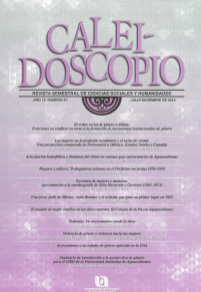Homes and workshops: Urban workers in the Mexican Porfiriato 1876-1910
DOI:
https://doi.org/10.33064/27crscsh464Keywords:
women, Porfiriato, industrialization, urbanization, gender, economic change, textile industry, tobacco industry, prostitution.Abstract
By analyzing the specific ways in which urban women were integrated into the process of economic growth in Porfirian Mexico, we are deepening in knowledge about the specific effects of mechanization in the productive process and economic change in women's lives. I have chosen three key activities to exemplify these processes: the factory production of fabrics, the tobacco sector and prostitution in the most urbanized area of the country, Mexico City. The first two activities experienced mechanical and organizational changes that affected women. Prostitution, the oldest trade in the world, was also modified. Lives and the activities of women were modified in the factory, in the workshop and in the home. The gender perspective helps us to illuminate the lives of women as economic actors and to understand their own economic changes as processes differentiated by gender.Downloads
Metrics
Downloads
Published
How to Cite
Issue
Section
License
Licencia Creative Commons Atribución-NoComercial-CompartirIgual 4.0 Internacional
El lector es libre de compartir o adaptar el material en cualquier medio o formato bajo las condiciones siguientes: (a) debe reconocer adecuadamente la autoría, proporcionar un enlace a la licencia e indicar si se han realizado cambios; (b) no puede utilizar el material para una finalidad comercial y (c) si remezcla, transforma o crea a partir del material, deberá difundir sus contribuciones bajo la misma licencia que el original.
Resumen de la licencia
https://creativecommons.org/licenses/by-nc-sa/4.0/deed.es_ES
Texto completo de la licencia
https://creativecommons.org/licenses/by-nc-sa/4.0/legalcode
Cada autor es responsable del contenido de su artículo. En el caso de un texto colectivo, el primer autor asume la responsabilidad intelectual de los resultados del proceso editorial; los autores son responsables de obtener la licencia de autor para reproducir materiales gráficos o fotográficos que pertenecen a terceros.
Los autores asumen plena responsabilidad en el caso de falsificación de datos o falta de autenticidad en la investigación. Se comprometen, también, a no reutilizar trabajos ya publicados, total o parcialmente, para presentarlos en otra publicación.
Estas condiciones aplican tanto a la versión impresa como a la versión electrónica de la revista.

























